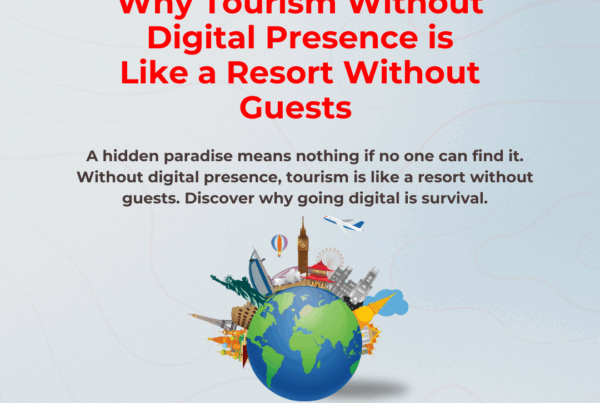The role of marketing has evolved significantly in Kenya. The rise of digitalization has led two marketing strategies to take center stage: Social Media Marketing and Content Marketing. Both approaches offer unique advantages and cater to different aspects of brand promotion.
In this article, we will delve into the nuances of Social Media Marketing and Content Marketing, exploring their strengths, weaknesses, and their suitability for brands in Kenya.
Understanding Social Media Marketing in Kenya
Social Media Marketing (SMM) has become an integral part of any brand’s marketing strategy, not just in Kenya but worldwide. It leverages social media platforms such as TikTok, Facebook, Twitter, Instagram, and LinkedIn to reach and engage with a target audience. The core principle of SMM is creating and sharing content that appeals to your audience on these platforms.
Strengths of Social Media Marketing:
- Wide Reach: Social media platforms boast billions of users worldwide. In Kenya, platforms like TikTok, Facebook, Twitter, and Instagram have a massive user base. This provides brands with an opportunity to reach a large and diverse audience.
- Engagement: SMM allows brands to interact directly with their audience through comments, likes, shares, and direct messages. This engagement fosters a sense of community and brand loyalty.
- Cost-Effective: Compared to traditional advertising channels, SMM can be more cost-effective. Brands can run targeted ad campaigns with precise budget control, ensuring they reach the right audience without overspending.
- Real-time Feedback: Social media offers real-time feedback through comments and reactions. Brands can quickly gauge the impact of their campaigns and make necessary adjustments.
Weaknesses of Social Media Marketing:
- High Competition: The popularity of social media marketing has led to high competition for users’ attention. Standing out amidst the noise can be challenging.
- Algorithm Changes: Social media platforms regularly update their algorithms, affecting the visibility of organic content. This means brands may need to invest in paid advertising to maintain reach.
- Short-term Focus: SMM often focuses on immediate results, such as likes, shares, and comments, which may not always translate directly into long-term brand loyalty or sales.
Understanding Content Marketing in Kenya
Content Marketing, on the other hand, takes a more holistic approach to brand promotion. It involves creating and distributing valuable and relevant content to attract and engage a target audience. This content can take various forms, including blog articles, videos, infographics, e-books, and more.
Strengths of Content Marketing:
- Builds Authority: Content Marketing allows brands to establish themselves as experts in their field. High-quality, informative content can position a brand as a trusted source of information.
- Long-term Benefits: Content Marketing often generates compounding returns. Over time, well-crafted content continues to attract organic traffic and engagement, unlike paid advertising that stops when the budget is exhausted.
- Audience Education: Content Marketing is an excellent tool for educating your audience. It can answer their questions, address pain points, and guide them through their buyer’s journey.
- SEO Benefits: Search engines love fresh and valuable content. Content Marketing can improve a brand’s search engine ranking, making it easier for potential customers to find them online.
Weaknesses of Content Marketing:
- Time-Intensive: Creating high-quality content takes time and effort. Brands need to invest in research, writing, editing, and promotion.
- Results May Take Time: Unlike SMM, Content Marketing often requires patience. It can take time to see significant results, especially for newer brands.
- Continuous Effort: Content Marketing is an ongoing process. Brands must consistently produce valuable content to maintain their online presence.
Which Suits Your Brand Best in Kenya?
The choice between Social Media Marketing and Content Marketing depends on your brand’s goals, target audience, and resources. Here are some key considerations for brands in Kenya:
- Audience Demographics: If your target audience in Kenya is primarily active on social media platforms, SMM might be more effective. However, if your audience prefers in-depth information and educational content, Content Marketing may be the way to go.
- Budget: SMM can be more budget-friendly in the short term due to its ability to target specific demographics. Content Marketing, while cost-effective in the long run, requires a consistent investment in content creation.
- Brand Image: Consider your brand’s image and the type of content that aligns with it. If your brand aims to be seen as an authority and a thought leader, Content Marketing can help you achieve that.
- Goals: Define your marketing goals clearly. Are you looking for immediate sales and engagement, or are you focused on long-term brand building and authority? Your goals will influence your choice.
- Resources: Assess the resources you have available. Content Marketing requires skilled writers, editors, and a consistent production schedule. SMM may demand expertise in ad management and social media strategy.
For brands in Kenya and across Africa, navigating the complexities of Social Media Marketing and Content Marketing can be challenging. With a strong presence in Kenya and throughout Africa, contact CHARLESON® marketing agency. We bring a unique blend of expertise in both Social Media Marketing and Content Marketing to our clients for the best marketing results.




